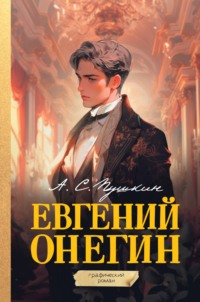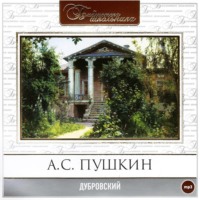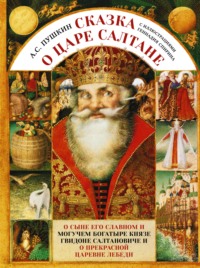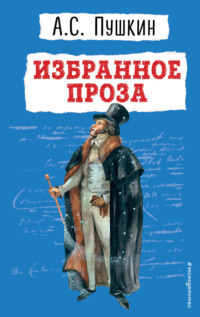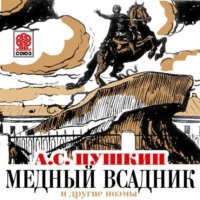Евгений Онегин / Eugene Onegin
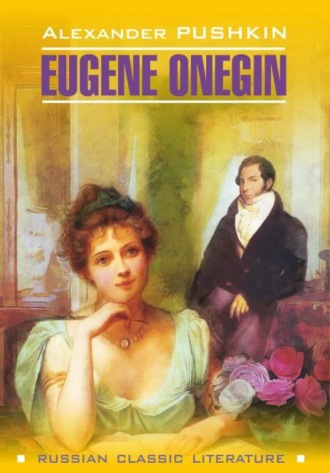
Полная версия
Евгений Онегин / Eugene Onegin
Язык: Английский
Год издания: 2021
Добавлена:
Настройки чтения
Размер шрифта
Высота строк
Поля
LI
Here I remark all poets areLove to idealize inclined;I have dreamed many a vision fairAnd the recesses of my mindRetained the image, though short-lived,Which afterwards the muse revived.Thus carelessly I once portrayedMine own ideal, the mountain maid,The captives of the Salguir’s shore[20].But now a question in this wiseOft upon friendly lips doth rise:Whom doth thy plaintive Muse adore?To whom amongst the jealous throngOf maids dost thou inscribe thy song?LII
Whose glance reflecting inspirationWith tenderness hath recognizedThy meditative incantation —Whom hath thy strain immortalized?None, be my witness Heaven above!The malady of hopeless loveI have endured without respite.Happy who thereto can unitePoetic transport. They impartA double force unto their songWho following Petrarch move alongAnd ease the tortures of the heart —Perchance they laurels also cull —But I, in love, was mute and dull.LIII
The Muse appeared, when love passed byAnd my dark soul to light was brought;Free, I renewed the idolatryOf harmony enshrining thought.I write, and anguish flies away,Nor doth my absent pen portrayAround my stanzas incompleteYoung ladies’ faces and their feet.Extinguished ashes do not blaze —I mourn, but tears I cannot shed —Soon, of the tempest which hath fledTime will the ravages efface —When that time comes, a poem I’ll striveTo write in cantos twenty-five.LIV
I’ve thought well o’er the general plan,The hero’s name too in advance,Meantime I’ll finish whilst I canCanto the First of this romance.I’ve scanned it with a jealous eye,Discovered much absurdity,But will not modify a tittle —I owe the censorship a little.For journalistic deglutitionI yield the fruit of work severe.Go, on the Neva’s bank appear,My very latest composition!Enjoy the meed which Fame bestows —Misunderstanding, words and blows.Canto the Second
“O Rus!”
HoraceI
The village wherein yawned EugeneWas a delightful little spot,There friends of pure delight had beenGrateful to Heaven for their lot.The lonely mansion-house to screenFrom gales a hill behind was seen;Before it ran a stream. Behold!Afar, where clothed in green and goldMeadows and cornfields are displayed,Villages in the distance showAnd herds of oxen wandering low;Whilst nearer, sunk in deeper shade,A thick immense neglected groveExtended – haunt which Dryads love.II
‘Twas built, the venerable pile,As lordly mansions ought to be,In solid, unpretentious style,The style of wise antiquity.Lofty the chambers one and all,Silk tapestry upon the wall,Imperial portraits hang aroundAnd stoves of various shapes abound.All this I know is out of date,I cannot tell the reason why,But Eugene, incontestably,The matter did not agitate,Because he yawned at the bare viewOf drawing-rooms or old or new.III
He took the room wherein the oldMan – forty years long in this wise —His housekeeper was wont to scold,Look through the window and kill flies.‘Twas plain – an oaken floor ye scan,Two cupboards, table, soft divan,And not a speck of dirt descried.Onegin oped the cupboards wide.In one he doth accounts behold,Here bottles stand in close array,There jars of cider block the way,An almanac but eight years old.His uncle, busy man indeed,No other book had time to read.IV
Alone amid possessions great,Eugene at first began to dream,If but to lighten Time’s dull rate,Of many an economic scheme;This anchorite amid his wasteThe ancient barshtchina replacedBy an obrok’s[21] indulgent rate:The peasant blessed his happy fate.But this a heinous crime appearedUnto his neighbour, man of thrift,Who secretly denounced the gift,And many another slily sneered;And all with one accord agreed,He was a dangerous fool indeed.V
All visited him at first, of course;But since to the backdoor they ledMost usually a Cossack horseUpon the Don’s broad pastures bredIf they but heard domestic loadsCome rumbling up the neighbouring roads,Most by this circumstance offendedAll overtures of friendship ended.“Oh! what a fool our neighbour is!He’s a freemason, so we think.Alone he doth his claret drink,A lady’s hand doth never kiss.‘Tis yes! no! never madam! sir!”This was his social character.VI
Into the district then to bootA new proprietor arrived,From whose analysis minuteThe neighbourhood fresh sport derived.Vladimir Lenski was his name,From Gottingen inspired he came,A worshipper of Kant, a bard,A young and handsome galliard.He brought from mystic GermanyThe fruits of learning and combinedA fiery and eccentric mind,Idolatry of liberty,A wild enthusiastic tongue,Black curls which to his shoulders hung.VII
The pervert world with icy chillHad not yet withered his young breast.His heart reciprocated stillWhen Friendship smiled or Love caressed.He was a dear delightful fool —A nursling yet for Hope to school.The riot of the world and glareStill sovereigns of his spirit were,And by a sweet delusion heWould soothe the doubtings of his soul,He deemed of human life the goalTo be a charming mystery:He racked his brains to find its clueAnd marvels deemed he thus should view.VIII
This he believed: a kindred spiritImpelled to union with his ownLay languishing both day and night —Waiting his coming – his alone!He deemed his friends but longed to makeGreat sacrifices for his sake!That a friend’s arm in every caseFelled a calumniator base!That chosen heroes consecrate,Friends of the sons of every land,Exist – that their immortal bandShall surely, be it soon or late,Pour on this orb a dazzling lightAnd bless mankind with full delight.IX
Compassion now or wrath inspiresAnd now philanthropy his soul,And now his youthful heart desiresThe path which leads to glory’s goal.His harp beneath that sky had rungWhere sometime Goethe, Schiller sung,And at the altar of their fameHe kindled his poetic flame.But from the Muses’ loftiest heightThe gifted songster never swerved,But proudly in his song preservedAn ever transcendental flight;His transports were quite maidenly,Charming with grave simplicity.X
He sang of love – to love a slave.His ditties were as pure and brightAs thoughts which gentle maidens have,As a babe’s slumber, or the lightOf the moon in the tranquil skies,Goddess of lovers’ tender sighs.He sang of separation grim,Of what not, and of distant dim,Of roses to romancers dear;To foreign lands he would allude,Where long time he in solitudeHad let fall many a bitter tear:He sang of life’s fresh colours stainedBefore he eighteen years attained.XI
Since Eugene in that solitudeGifts such as these alone could prize,A scant attendance Lenski showedAt neighbouring hospitalities.He shunned those parties boisterous;The conversation tediousAbout the crop of hay, the wine,The kennel or a kindred line,Was certainly not eruditeNor sparkled with poetic fire,Nor wit, nor did the same inspireA sense of social delight,But still more stupid did appearThe gossip of their ladies fair.XII
Handsome and rich, the neighbourhoodLenski as a good match received, —Such is the country custom good;All mothers their sweet girls believedSuitable for this semi-Russian.He enters: rapidly discussionShifts, tacks about, until they prateThe sorrows of a single state.Perchance where Dunia pours out teaThe young proprietor we find;To Dunia then they whisper: Mind!And a guitar produced we see,And Heavens! warbled forth we hear:Come to my golden palace, dear![22]XIII
But Lenski, having no desireVows matrimonial to break,With our Onegin doth aspireAcquaintance instantly to make.They met. Earth, water, prose and verse,Or ice and flame, are not diverseIf they were similar in aught.At first such contradictions wroughtMutual repulsion and ennui,But grown familiar side by sideOn horseback every day they ride —Inseparable soon they be.Thus oft – this I myself confess —Men become friends from idleness.XIV
But even thus not now-a-days!In spite of common sense we’re wontAs cyphers others to appraise,Ourselves as unities to count;And like Napoleons each of usA million bipeds reckons thusOne instrument for his own use —Feeling is silly, dangerous.Eugene, more tolerant than this(Though certainly mankind he knewAnd usually despised it too),Exceptionless as no rule is,A few of different temper deemed,Feeling in others much esteemed.XV
With smiling face he Lenski hears;The poet’s fervid conversationAnd judgment which unsteady veersAnd eye which gleams with inspiration —All this was novel to Eugene.The cold reply with gloomy mienHe oft upon his lips would curb,Thinking: ’tis foolish to disturbThis evanescent boyish bliss.Time without me will lessons give,So meantime let him joyous liveAnd deem the world perfection is!Forgive the fever youth inspires,And youthful madness, youthful fires.XVI
The gulf between them was so vast,Debate commanded ample food —The laws of generations past,The fruits of science, evil, good,The prejudices all men have,The fatal secrets of the grave,And life and fate in turn selectedWere to analysis subjected.The fervid poet would recite,Carried away by ecstasy,Fragments of northern poetry,Whilst Eugene condescending quite,Though scarcely following what was said,Attentive listened to the lad.XVII
But more the passions occupyThe converse of our hermits twain,And, heaving a regretful sigh,An exile from their troublous reign,Eugene would speak regarding these.Thrice happy who their agoniesHath suffered but indifferent grown,Still happier he who ne’er hath known!By absence who hath chilled his love,His hate by slander, and who spendsExistence without wife or friends,Whom jealous transport cannot move,And who the rent-roll of his raceNe’er trusted to the treacherous ace.XVIII
When, wise at length, we seek reposeBeneath the flag of Quietude,When Passion’s fire no longer glowsAnd when her violence reviewed —Each gust of temper, silly word,Seems so unnatural and absurd:Reduced with effort unto sense,We hear with interest intenseThe accents wild of other’s woes,They stir the heart as heretofore.So ancient warriors, battles o’er,A curious interest discloseIn yarns of youthful troopers gay,Lost in the hamlet far away.XIX
And in addition youth is flameAnd cannot anything conceal,Is ever ready to proclaimThe love, hate, sorrow, joy, we feel.Deeming himself a veteran scarredIn love’s campaigns Onegin heardWith quite a lachrymose expressionThe youthful poet’s fond confession.He with an innocence extremeHis inner consciousness laid bare,And Eugene soon discovered thereThe story of his young love’s dream,Where plentifully feelings flowWhich we experienced long ago.XX
Alas! he loved as in our timesMen love no more, as only theMad spirit of the man who rhymesIs still condemned in love to be;One image occupied his mind,Constant affection intertwinedAnd an habitual sense of pain;And distance interposed in vain,Nor years of separation allNor homage which the Muse demandsNor beauties of far distant landsNor study, banquet, rout nor ballHis constant soul could ever tire,Which glowed with virginal desire.XXI
When but a boy he Olga lovedUnknown as yet the aching heart,He witnessed tenderly and movedHer girlish gaiety and sport.Beneath the sheltering oak tree’s shadeHe with his little maiden played,Whilst the fond parents, friends thro’ life,Dreamed in the future man and wife.And full of innocent delight,As in a thicket’s humble shade,Beneath her parents’ eyes the maidGrew like a lily pure and white,Unseen in thick and tangled grassBy bee and butterfly which pass.XXII
‘Twas she who first within his breastPoetic transport did infuse,And thoughts of Olga first impressedA mournful temper on his Muse.Farewell! thou golden days of love!‘Twas then he loved the tangled groveAnd solitude and calm delight,The moon, the stars, and shining night —The moon, the lamp of heaven above,To whom we used to consecrateA promenade in twilight lateWith tears which secret sufferers love —But now in her effulgence paleA substitute for lamps we hail!XXIII
Obedient she had ever beenAnd modest, cheerful as the morn,As a poetic life serene,Sweet as the kiss of lovers sworn.Her eyes were of cerulean blue,Her locks were of a golden hue,Her movements, voice and figure slight,All about Olga – to a lightRomance of love I pray refer,You’ll find her portrait there, I vouch;I formerly admired her muchBut finally grew bored by her.But with her elder sister IMust now my stanzas occupy.XXIV
Tattiana was her appellation.We are the first who such a nameIn pages of a love narrationWith such a perversity proclaim.But wherefore not? – ‘Tis pleasant, nice,Euphonious, though I know a spiceIt carries of antiquityAnd of the attic. Honestly,We must admit but little tasteDoth in us or our names appear(I speak not of our poems here),And education runs to waste,Endowing us from out her storeWith affectation, – nothing more.XXV
And so Tattiana was her name,Nor by her sister’s brilliancyNor by her beauty she becameThe cynosure of every eye.Shy, silent did the maid appearAs in the timid forest deer,Even beneath her parents’ roofStood as estranged from all aloof,Nearest and dearest knew not howTo fawn upon and love express;A child devoid of childishnessTo romp and play she ne’er would go:Oft staring through the window paneWould she in silence long remain.XXVI
Contemplativeness, her delight,E’en from her cradle’s earliest dream,Adorned with many a vision brightOf rural life the sluggish stream;Ne’er touched her fingers indolentThe needle nor, o’er framework bent,Would she the canvas tight enrichWith gay design and silken stitch.Desire to rule ye may observeWhen the obedient doll in sportAn infant maiden doth exhortPolite demeanour to preserve,Gravely repeating to anotherRecent instructions of its mother.XXVII
But Tania ne’er displayed a passionFor dolls, e’en from her earliest years,And gossip of the town and fashionShe ne’er repeated unto hers.Strange unto her each childish game,But when the winter season cameAnd dark and drear the evenings were,Terrible tales she loved to hear.And when for Olga nurse arrayedIn the broad meadow a gay rout,All the young people round about,At prisoner’s base she never played.Their noisy laugh her soul annoyed,Their giddy sports she ne’er enjoyed.XXVIII
She loved upon the balconyTo anticipate the break of day,When on the pallid eastern skyThe starry beacons fade away,The horizon luminous doth grow,Morning’s forerunners, breezes blowAnd gradually day unfolds.In winter, when Night longer holdsA hemisphere beneath her sway,Longer the East inert reclinesBeneath the moon which dimly shines,And calmly sleeps the hours away,At the same hour she oped her eyesAnd would by candlelight arise.XXIX
Romances pleased her from the first,Her all in all did constitute;In love adventures she was versed,Rousseau and Richardson to boot.Not a bad fellow was her fatherThough superannuated rather;In books he saw nought to condemnBut, as he never opened them,Viewed them with not a little scorn,And gave himself but little painHis daughter’s book to ascertainWhich ’neath her pillow lay till morn.His wife was also mad uponThe works of Mr. Richardson.XXX
She was thus fond of RichardsonNot that she had his works perused,Or that adoring GrandisonThat rascal Lovelace she abused;But that Princess Pauline of old,Her Moscow cousin, often toldThe tale of these romantic men;Her husband was a bridegroom then,And she despite herself would wasteSighs on another than her lordWhose qualities appeared to affordMore satisfaction to her taste.Her Grandison was in the Guard,A noted fop who gambled hard.XXXI
Like his, her dress was always nice,The height of fashion, fitting tight,But contrary to her adviceThe girl in marriage they unite.Then, her distraction to allay,The bridegroom sage without delayRemoved her to his country seat,Where God alone knows whom she met.She struggled hard at first thus pent,Night separated from her spouse,Then became busy with the house,First reconciled and then content;Habit was given us in distressBy Heaven in lieu of happiness.XXXII
Habit alleviates the griefInseparable from our lot;This great discovery reliefAnd consolation soon begot.And then she soon ’twixt work and leisureFound out the secret how at pleasureTo dominate her worthy lord,And harmony was soon restored.The workpeople she superintended,Mushrooms for winter salted down,Kept the accounts, shaved many a crown[23],The bath on Saturdays attended,When angry beat her maids, I grieve,And all without her husband’s leave.XXXIII
In her friends’ albums, time had been,With blood instead of ink she scrawled,Baptized Prascovia Pauline,And in her conversation drawled.She wore her corset tightly bound,The Russian N with nasal soundShe would pronounce a la Francaise;But soon she altered all her ways,Corset and album and Pauline,Her sentimental verses all,She soon forgot, began to callAkulka who was once Celine,And had with waddling in the endHer caps and night-dresses to mend.XXXIV
As for her spouse he loved her dearly,In her affairs ne’er interfered,Entrusted all to her sincerely,In dressing-gown at meals appeared.Existence calmly sped along,And oft at eventide a throngOf friends unceremonious wouldAssemble from the neighbourhood:They growl a bit – they scandalise —They crack a feeble joke and smile —Thus the time passes and meanwhileOlga the tea must supervise —‘Tis time for supper, now for bed,And soon the friendly troop hath fled.XXXV
They in a peaceful life preservedCustoms by ages sanctified,Strictly the Carnival observed,Ate Russian pancakes at Shrovetide,Twice in the year to fast were bound,Of whirligigs were very fond,Of Christmas carols, song and dance;When people with long countenanceOn Trinity Sunday yawned at prayer,Three tears they dropt with humble meinUpon a bunch of lovage green;Kvass needful was to them as air;On guests their servants used to waitBy rank as settled by the State.[24]XXXVI
Thus age approached, the common doom,And death before the husband wideOpened the portals of the tombAnd a new diadem supplied.[25]Just before dinner-time he slept,By neighbouring families bewept,By children and by faithful wifeWith deeper woe than others’ grief.He was an honest gentleman,And where at last his bones reposeThe epitaph on marble shows:Demetrius Larine, sinful man,Servant of God and brigadier,Enjoyeth peaceful slumber here.XXXVII
To his Penates now returned,Vladimir Lenski visitedHis neighbour’s lowly tomb and mournedAbove the ashes of the dead.There long time sad at heart he stayed:“Poor Yorick,” mournfully he said,“How often in thine arms I lay;How with thy medal I would play,The Medal Otchakoff conferred![26]To me he would his Olga give,Would whisper: shall I so long live?” —And by a genuine sorrow stirred,Lenski his pencil-case took outAnd an elegiac poem wrote.XXXVIII
Likewise an epitaph with tearsHe writes upon his parents’ tomb,And thus ancestral dust reveres.Oh! on the fields of life how bloomHarvests of souls unceasinglyBy Providence’s dark decree!They blossom, ripen and they fallAnd others rise ephemeral!Thus our light race grows up and lives,A moment effervescing stirs,Then seeks ancestral sepulchres,The appointed hour arrives, arrives!And our successors soon shall driveUs from the world wherein we live.XXXIX
Meantime, drink deeply of the flowOf frivolous existence, friends;Its insignificance I knowAnd care but little for its ends.To dreams I long have closed mine eyes,Yet sometimes banished hopes will riseAnd agitate my heart again;And thus it is ’twould cause me painWithout the faintest trace to leaveThis world. I do not praise desire,Yet still apparently aspireMy mournful fate in verse to weave,That like a friendly voice its toneRescue me from oblivion.XL
Perchance some heart ’twill agitate,And then the stanzas of my themeWill not, preserved by kindly Fate,Perish absorbed by Lethe’s stream.Then it may be, O flattering tale,Some future ignoramus shallMy famous portrait indicateAnd cry: he was a poet great!My gratitude do not disdain,Admirer of the peaceful Muse,Whose memory doth not refuseMy light productions to retain,Whose hands indulgently caressThe bays of age and helplessness.Canto the Third
‘Elle était fille, elle était amoureuse’
MalfilatreI
“Whither away? Deuce take the bard!” —“Good-bye, Onegin, I must go.” —“I won’t detain you; but ’tis hardTo guess how you the eve pull through.” —“At Larina’s.” – “Hem, that is queer!Pray is it not a tough affairThus to assassinate the eve?” —“Not at all.” – “That I can’t conceive!‘Tis something of this sort I deem.In the first place, say, am I right?A Russian household simple quite,Who welcome guests with zeal extreme,Preserves and an eternal prattleAbout the rain and flax and cattle.” —II
“No misery I see in that” —“Boredom, my friend, behold the ill – ”“Your fashionable world I hate,Domestic life attracts me still,Where – “ – “What! another eclogue spin?For God’s sake, Lenski, don’t begin!What! really going? ’Tis too bad!But Lenski, I should be so gladWould you to me this Phyllis show,Fair source of every fine idea,Verses and tears et cetera.Present me.” – “You are joking.” – “No.” —“Delighted.” – “When?” – “This very night.They will receive us with delight.”III
Whilst homeward by the nearest routeOur heroes at full gallop sped,Can we not stealthily make outWhat they in conversation said? —“How now, Onegin, yawning still?” —“‘Tis habit, Lenski.” – “Is your illMore troublesome than usual?” – “No!How dark the night is getting though!Hallo, Andriushka, onward race!The drive becomes monotonous —Well! Larina appears to usAn ancient lady full of grace. —That bilberry wine, I’m sore afraid,The deuce with my inside has played.”IV
“Say, of the two which was Tattiana?”“She who with melancholy faceAnd silent as the maid Svetlana[27]Hard by the window took her place.” —“The younger, you’re in love with her!”“Well!” – “I the elder should prefer,Were I like you a bard by trade —In Olga’s face no life’s displayed.‘Tis a Madonna of Vandyk,An oval countenance and pink,Yon silly moon upon the brinkOf the horizon she is like!” —Vladimir something curtly saidNor further comment that night made.V
Meantime Onegin’s apparitionAt Larina’s abode producedQuite a sensation; the positionTo all good neighbours’ sport conduced.Endless conjectures all propoundAnd secretly their views expound.What jokes and guesses now abound,A beau is for Tattiana found!In fact, some people were assuredThe wedding-day had been arranged,But the date subsequently changedTill proper rings could be procured.On Lenski’s matrimonial fateThey long ago had held debate.VI
Of course Tattiana was annoyedBy such allusions scandalous,Yet was her inmost soul o’erjoyedWith satisfaction marvellous,As in her heart the thought sank home,I am in love, my hour hath come!Thus in the earth the seed expandsObedient to warm Spring’s commands.Long time her young imaginationBy indolence and languor firedThe fated nutriment desired;And long internal agitationHad filled her youthful breast with gloom,She waited for – I don’t know whom!VII
The fatal hour had come at last —She oped her eyes and cried: ’tis he!Alas! for now before her passedThe same warm vision constantly;Now all things round about repeatCeaselessly to the maiden sweetHis name: the tenderness of homeTiresome unto her hath becomeAnd the kind-hearted servitors:Immersed in melancholy thought,She hears of conversation noughtAnd hated casual visitors,Their coming which no man expects,And stay whose length none recollects.




